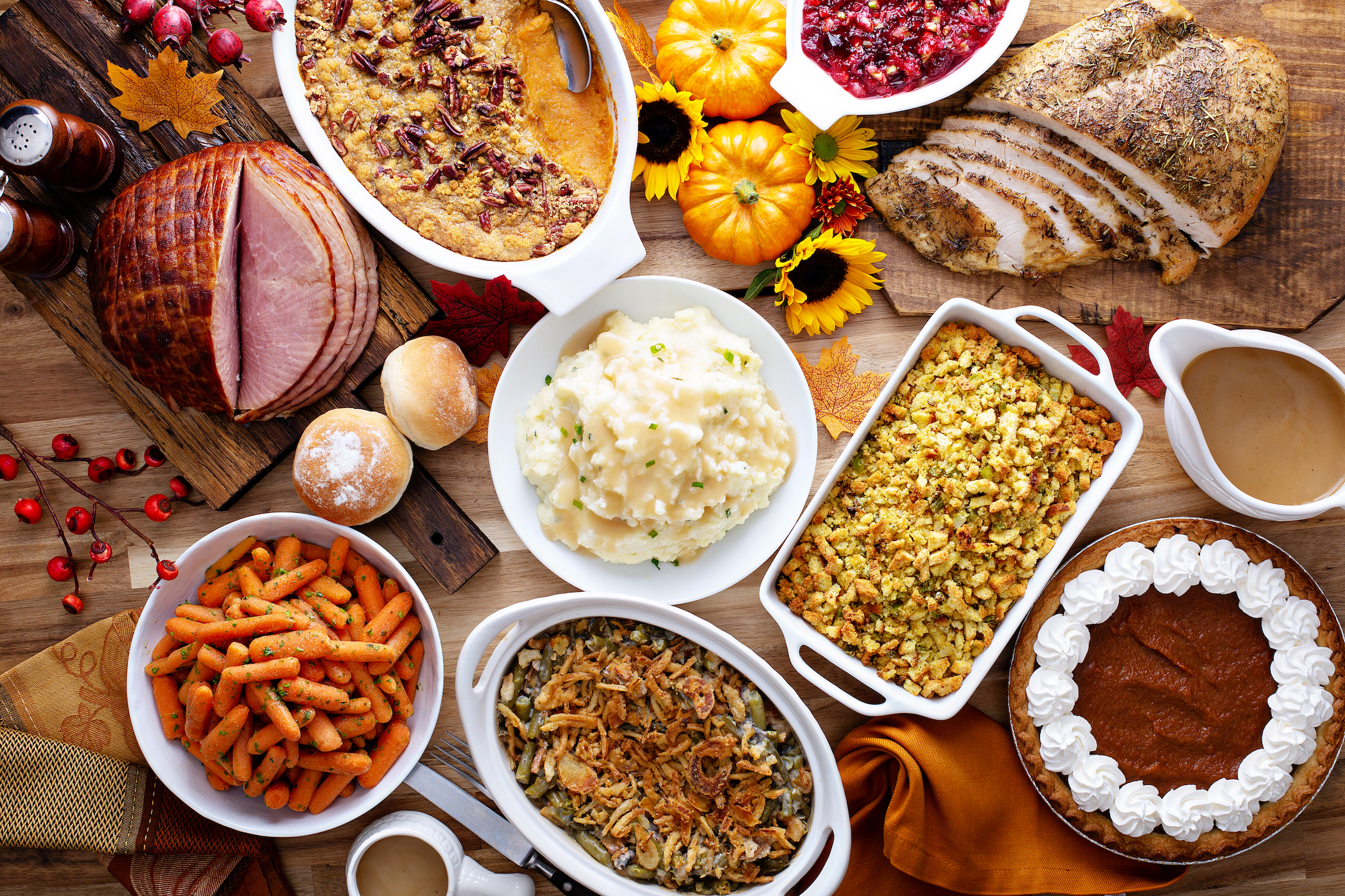I’m the last person who should be telling anyone how to eat over the holidays.
For as long as I can remember, the holiday season has been at once a dreaded obstacle and a euphoric excuse: an obstacle when I was “on plan”; an excuse when I wasn’t.
I’ve fasted all Thanksgiving Day to justify processed potatoes and salty stuffing at dinner. I’ve gorged myself all December because “screw it, it’s Christmas.”
Neither tactic ever works.
Instead, the holidays take their usual place in the revolving conga line of on-again, off-again attempts at good nutrition, dancing to the beat of empty promises, black-and-white thinking, failure, and regret.
“Next year, I’ll have my act together,” I think between appetizers.

Is your holiday table a place of celebration or temptation?
I thought I resolved my food issues when I lost 100 lb more than 10 years ago. That was before I’d even heard of CrossFit; once I became a dyed-in-the-wool believer in constantly varied functional movement executed at high intensity, I figured maintenance would be easy. The 100-plus lb I gained back over the next decade proved it wasn’t.
That’s because even when I was losing the weight, I’d never really broken free from food and its hold on me. I was just abusing it in a different way.
I never restricted dangerously; never purged. But I did label foods — and as they related to food, my actions — as “good” or “bad” depending on their propensity to help me lose or gain weight. The result was a morality complex with food and an inability to live in the gray.
So you can likely understand my hesitation when I was asked to join a nutrition experiment a few months ago. A few of my colleagues at CrossFit HQ invited me to join them in a 90-day carnivore-diet challenge.
The carnivore diet is a highly restrictive protocol in which practitioners eat only animal products — meat, eggs, and animal fats — with the goal of reduced inflammation, improved digestion, blood glucose stabilization, and more.
While CrossFit’s recommendation for nutrition is to eat meat, vegetables, nuts, seeds, some fruit, little starch, and no sugar, CrossFit is founded on an open-source charter — meaning we don’t doggedly hold to only what we believe to be true; we experiment and evolve. Elimination diets are also supported in CrossFit’s Nutrition I Course, which states: “Our nutrition recommendation of high-quality whole foods and quantification of intake is independent of any specific diet and can be readily adapted to work with any dietary specialization. … Elimination diets exclude a specific food or food group for either a short or long period of time. The purpose of exclusion is to determine whether there are adverse food reactions or allergic responses from eating these food types. These diets become a way to diagnose and treat food sensitivities, food allergies, and their resulting medical conditions, such as autoimmune conditions.”
But I’m not here to debate the merits of the carnivore diet. I bring it up only to bring you up to speed on what was going through my head when I was invited to participate: All-or-nothing approaches to food had always led to binges and weight gain in my past. Was this a good idea or a terrible one?

What if you celebrated the holiday by making yourself better this year?
As of this writing, it’s been 74 days since the challenge began. I’ve lost 37 lb of fat and gained 8 lb of muscle. But what’s more interesting is what I’ve learned about my relationship with food.
In my many various attempts at weight loss, there was always a way to still use food as a reward and an escape. Maybe I couldn’t have a pint of Ben and Jerry’s, but I could still have two small dark chocolates and a glass of wine at night. During the challenge, there have been no such escapes, and I’ve been forced to face the fact that no matter how “on-plan” I’ve ever been, I’ve still been dependent on food-based rewards to get me through life. And I don’t want to live that way anymore.
Which brings me back to the holidays.
Historically, I’ve gleefully looked forward to them mostly as a time to stuff my face. Forget a time to rest or to enjoy the company of family and friends. And forget moderation; what was the point of ruining my diet for just one cookie?
But what if, this year, the holidays weren’t about escapism? What if the meal was just one part of something more meaningful? What if the holidays weren’t about food at all?
And if the holidays don’t have to be about food, maybe life — and the reason for getting through it — doesn’t, either.
Comments on Fast or Feast?
74 days is impressive! Good work
I definitely have used food or dessert as rewards throughout my life. I'll be a good carnivore for a few days and then go hard on the ice cream, chocolate, or even reward with a drink. But then it typically lasts a few days.
Maybe I just need to treat food as simply fuel and not a pleasure, but also where is the fun in that? I do think food is designed to be a JOY to the senses.
Fast or Feast?
1